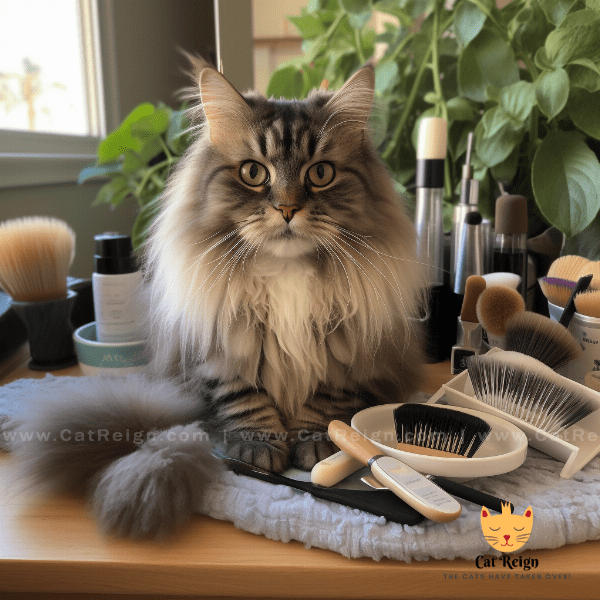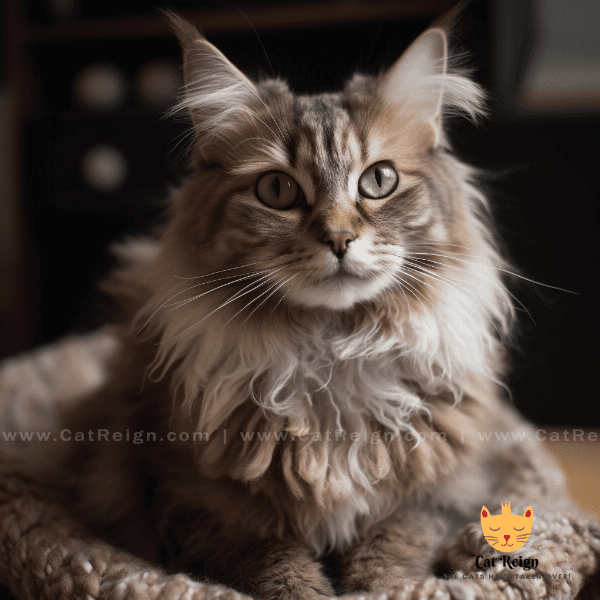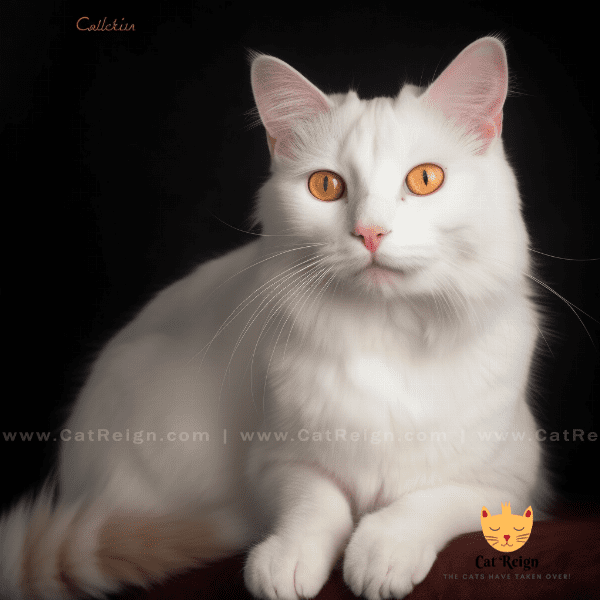Table of Contents
- Introduction to Javanese Cats
- History and Origin of Javanese Cats
- Physical Characteristics of Javanese Cats
- Personality Traits of Javanese Cats
- Health Concerns for Javanese Cats
- Diet and Exercise Needs for Javanese Cats
- Grooming and Care for Javanese Cats
- Training Tips for Javanese Cats
- Javanese Cats and Their Relationship with Humans
- Conclusion: Why Javanese Cats Make Great Pets
Introduction to Javanese Cats
Javanese Cats are a unique breed that originated in the United States in the 1950s. They are a hybrid breed that was created by crossing Siamese cats with Balinese cats, resulting in a cat with Siamese-like coloring but with a longer, silky coat like the Balinese. Here are some things you should know about Javanese Cats.
Friendly and Affectionate
Javanese Cats are known for their friendly and affectionate personalities. They are social cats that thrive on human interaction and attention. They love to play and are great with children and other pets.
Intelligent and Active
Javanese Cats are intelligent and active cats that require a lot of mental and physical stimulation. They are great problem solvers and love to play games that challenge their minds. They are also very agile and love to climb and explore their surroundings.
Vocal and Talkative
Javanese Cats are known for being vocal and talkative. They love to communicate with their owners and will often meow and purr to get attention. They have a wide range of vocalizations, from soft and gentle meows to loud and demanding calls.
Javanese Cats are a great choice for anyone looking for a friendly, affectionate, and intelligent cat. They are great with children and other pets and will quickly become a beloved member of any family. If you’re looking for a cat that will keep you entertained and engaged, then the Javanese Cat is the perfect choice for you.
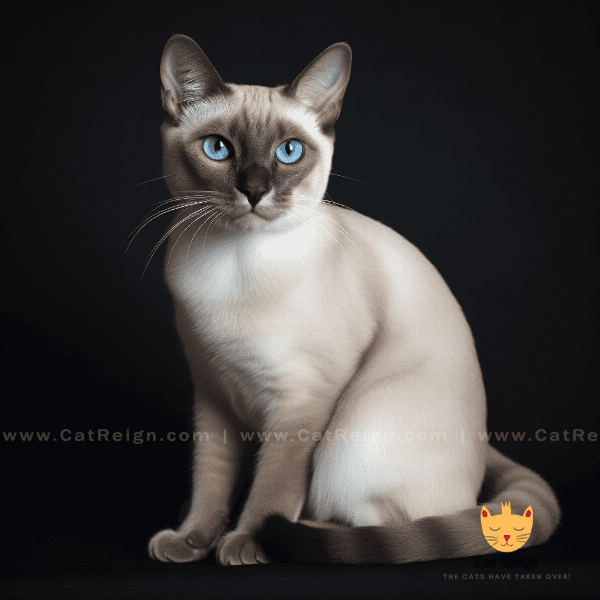
History and Origin of Javanese Cats
The Javanese Cat is a relatively new breed, with its origins in the United States in the 1950s. Here’s a brief history of how the breed came to be.
Siamese and Balinese Cats
The Javanese Cat is a hybrid breed that was created by crossing Siamese cats with Balinese cats. The Siamese cats contributed their pointed pattern and blue eyes, while the Balinese cats added their longer, silky coats.
The Beginnings of the Breed
The Javanese Cat breed began in the 1950s when a Siamese breeder in the United States bred a Siamese cat with a Balinese cat. The result was a litter of kittens with Siamese-like coloring and longer coats. These kittens were named “longhaired Siamese” and were shown in cat shows alongside Siamese cats.
The Name “Javanese”
In the 1970s, the longhaired Siamese cats were renamed “Javanese” to avoid confusion with the Birman breed, which was also sometimes called the “longhaired Siamese.” The name “Javanese” was chosen because it sounded exotic and mysterious, just like the Balinese cats that contributed to the breed.
Today, the Javanese Cat is recognized as a distinct breed by many cat organizations and is beloved by cat lovers around the world. They are known for their friendly personalities, intelligence, and beautiful long coats. If you’re considering adding a Javanese Cat to your family, you can be sure that you’re getting a unique and wonderful companion.
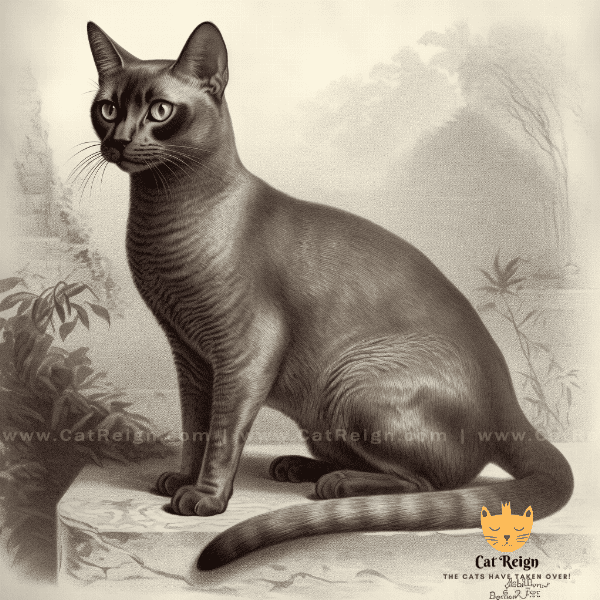
Physical Characteristics of Javanese Cats
Javanese Cats are a medium-sized breed with distinct physical features that set them apart from other cats. Here are some of the key physical characteristics of the Javanese Cat.
Body Type
Javanese Cats have a long, lean body with a graceful, elegant appearance. They are medium-sized cats with a muscular build and a lithe, athletic frame. Their tails are long and slender, and their paws are small and dainty.
Coat
The Javanese Cat has a long, silky coat that is soft to the touch. Their coat is usually a solid color, with shades ranging from cream to chocolate. They have striking blue eyes that are almond-shaped and slightly slanted.
Colorpoint Pattern
Like their Siamese ancestors, Javanese Cats have a colorpoint pattern, which means that their bodies are a lighter color while their faces, ears, paws, and tails are darker. This pattern is the result of a temperature-sensitive enzyme that affects the production of melanin, the pigment that gives color to skin and hair.
Shedding
Javanese Cats are a low-shedding breed, which makes them a great choice for people with allergies. However, their long hair requires regular grooming to prevent tangles and matting.
Javanese Cats are a stunning breed with a unique appearance and striking blue eyes. Their long, silky coat and graceful, athletic body make them a pleasure to look at, while their friendly personalities and intelligence make them a joy to be around. If you’re considering adding a Javanese Cat to your family, you can be sure that you’re getting a cat with both beauty and brains.
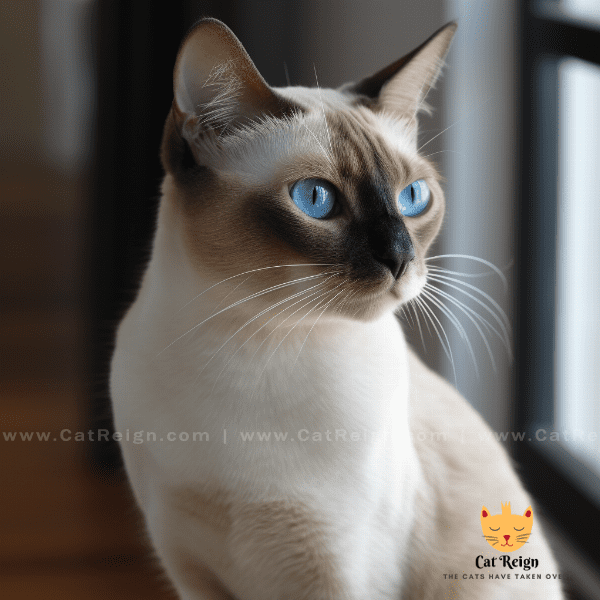
Personality Traits of Javanese Cats
Javanese Cats are known for their friendly and affectionate personalities, making them a popular choice for families and individuals alike. Here are some of the key personality traits of the Javanese Cat.
Affectionate
Javanese Cats are very affectionate and love to be around their owners. They thrive on human attention and enjoy being petted and cuddled. They are also known for their tendency to follow their owners around the house, always looking for attention and affection.
Playful
Javanese Cats are active and playful, with a love for toys and games. They enjoy playing fetch, chasing toys, and even playing hide and seek with their owners. Their intelligence and problem-solving skills make them excellent at games that challenge their minds, like puzzle toys and treat dispensers.
Vocal
Javanese Cats are a talkative breed, with a wide range of vocalizations. They are known for their loud and demanding meows, which they use to communicate with their owners. They are also very good at expressing their feelings through body language, such as arching their backs and puffing up their tails when they are feeling threatened or scared.
Curious
Javanese Cats are curious creatures that love to explore their surroundings. They enjoy climbing and jumping, and can often be found perched on high shelves or furniture. They are also known for their love of water and will often play in sinks or bathtubs.
Overall, Javanese Cats are a delightful breed with a friendly and affectionate personality. They make great pets for families and individuals who are looking for a cat that is both playful and loving. If you’re considering adding a Javanese Cat to your home, be prepared for a lifetime of love and fun with your feline friend.
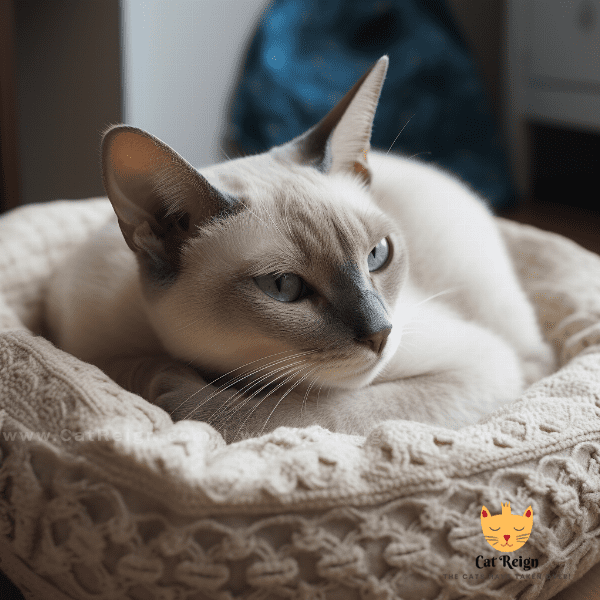
Health Concerns for Javanese Cats
Javanese Cats are generally healthy cats, but like all breeds, they are prone to certain health issues. Here are some of the health concerns that Javanese Cat owners should be aware of.
Dental Issues
Javanese Cats are prone to dental issues, such as periodontal disease and tooth decay. It’s important to brush your Javanese Cat’s teeth regularly and to take them for regular dental check-ups with your veterinarian.
Obesity
Javanese Cats can be prone to obesity if they don’t get enough exercise or if they overeat. Obesity can lead to a range of health problems, such as diabetes, joint pain, and heart disease. It’s important to monitor your Javanese Cat’s weight and to provide them with regular exercise and a balanced diet.
Heart Disease
Javanese Cats can be prone to heart disease, such as hypertrophic cardiomyopathy (HCM). This is a genetic condition that can cause thickening of the heart muscle, leading to heart failure. It’s important to have your Javanese Cat screened for heart disease regularly, especially if you plan to breed them.
Allergies
Javanese Cats can be prone to allergies, which can cause a range of symptoms, such as itching, sneezing, and skin irritation. It’s important to identify and treat allergies early to prevent more serious health issues from developing.
By being aware of these health concerns and taking proactive steps to prevent and treat them, you can help ensure that your Javanese Cat stays healthy and happy for years to come. Regular check-ups with your veterinarian and a healthy lifestyle can go a long way in ensuring that your Javanese Cat lives a long and fulfilling life.

Diet and Exercise Needs for Javanese Cats
Javanese Cats have specific dietary and exercise needs that are important to their health and well-being. Here are some things to consider when it comes to feeding and exercising your Javanese Cat.
Diet
Javanese Cats should be fed a high-quality, protein-rich diet that is appropriate for their age and activity level. It’s important to provide them with a balanced diet that includes all of the essential nutrients they need to thrive.
Feeding Schedule
Javanese Cats should be fed several small meals throughout the day, rather than one or two large meals. This helps to keep their metabolism stable and prevents overeating. It’s important to monitor your Javanese Cat’s weight and adjust their feeding schedule as needed.
Exercise
Javanese Cats are active and playful cats that require regular exercise to stay healthy and happy. They enjoy playing with toys and games that challenge their minds, as well as activities that allow them to climb, jump, and explore their surroundings.
Indoor vs. Outdoor Exercise
Javanese Cats can be kept indoors or allowed outside, depending on your living situation and personal preferences. If you choose to keep your Javanese Cat indoors, it’s important to provide them with plenty of toys and activities to keep them entertained and mentally stimulated.
Hydration
Javanese Cats should always have access to fresh, clean water. It’s important to change their water regularly and to provide them with plenty of water bowls throughout your home.
By providing your Javanese Cat with a healthy diet and regular exercise, you can help ensure that they stay healthy and happy. Whether you choose to keep your Javanese Cat indoors or allow them to explore the outdoors, it’s important to monitor their diet and exercise needs and to provide them with plenty of love and attention.
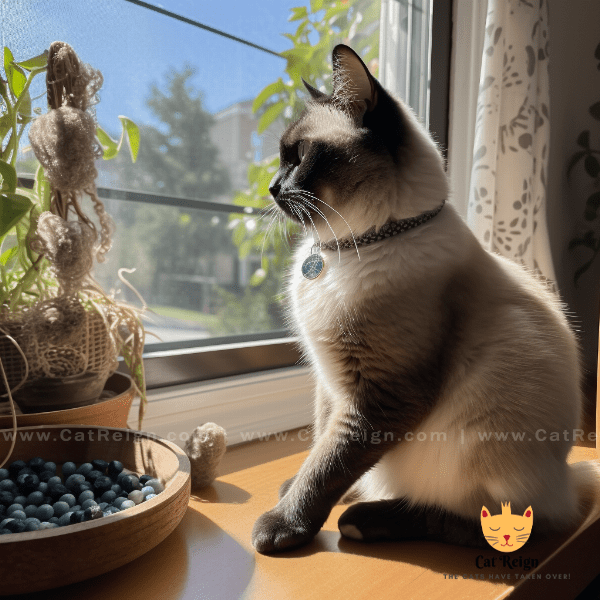
Grooming and Care for Javanese Cats
Javanese Cats require regular grooming and care to keep them healthy and comfortable. Here are some things to consider when it comes to grooming and caring for your Javanese Cat.
Brushing
Javanese Cats have long, silky coats that require regular brushing to prevent tangles and matting. They should be brushed at least once a week, and more frequently during shedding season. A good quality brush or comb is essential for keeping their coats in good condition.
Bathing
Javanese Cats do not require frequent bathing, as their coats are naturally self-cleaning. However, if they get into something dirty or smelly, or if they have a skin condition that requires bathing, you can use a gentle, cat-specific shampoo.
Nail Trimming
Javanese Cats should have their nails trimmed regularly to prevent them from becoming too long and causing discomfort or even injury. It’s important to use sharp, cat-specific nail clippers and to avoid cutting the quick, which can cause bleeding and pain.
Dental Care
Javanese Cats are prone to dental issues, so it’s important to provide them with regular dental care. This includes brushing their teeth regularly, as well as providing them with dental treats and toys to help keep their teeth clean and healthy.
Regular Check-Ups
Regular check-ups with your veterinarian are important for ensuring that your Javanese Cat stays healthy and happy. Your vet can provide you with guidance on your cat’s diet, exercise, and grooming needs, as well as screen them for any potential health issues.
By providing your Javanese Cat with regular grooming and care, you can help keep them healthy and comfortable. Regular brushing, nail trimming, and dental care, along with regular veterinary check-ups, can go a long way in ensuring that your Javanese Cat lives a long and happy life.
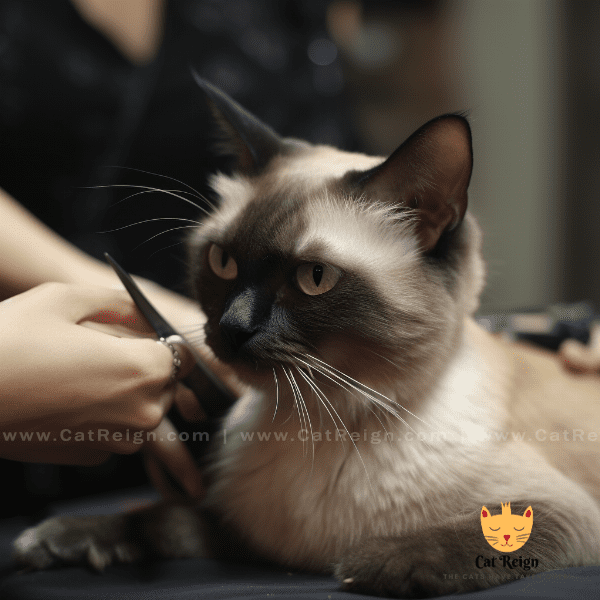
Training Tips for Javanese Cats
Javanese Cats are intelligent and curious cats that can be trained to do a variety of tricks and behaviors. Here are some training tips to help you get started.
Positive Reinforcement
Positive reinforcement is the most effective way to train your Javanese Cat. This means rewarding them for good behavior with treats, praise, and affection. Punishing your cat for bad behavior is not effective and can damage your relationship with your pet.
Clicker Training
Clicker training is a popular training method that uses a clicker to signal to your cat that they have done something correctly. This method is based on the principles of positive reinforcement and can be very effective for training cats.
Trick Training
Javanese Cats are natural performers and enjoy learning new tricks and behaviors. You can teach your Javanese Cat a variety of tricks, such as sitting, rolling over, and high-fiving. It’s important to keep training sessions short and to use positive reinforcement to keep your cat motivated and engaged.
Litter Box Training
Litter box training is an essential part of owning a Javanese Cat. They are generally fastidious creatures that prefer a clean litter box. It’s important to provide them with a litter box that is clean and accessible, and to praise them when they use it correctly.
Socialization
Socialization is important for Javanese Cats, especially if you have other pets or children in your home. It’s important to expose your Javanese Cat to a variety of people, animals, and environments from a young age to help them become well-adjusted and comfortable in different situations.
By using positive reinforcement and taking a patient, consistent approach to training, you can help your Javanese Cat learn new behaviors and tricks. Training can be a fun and rewarding way to bond with your cat and strengthen your relationship with them.
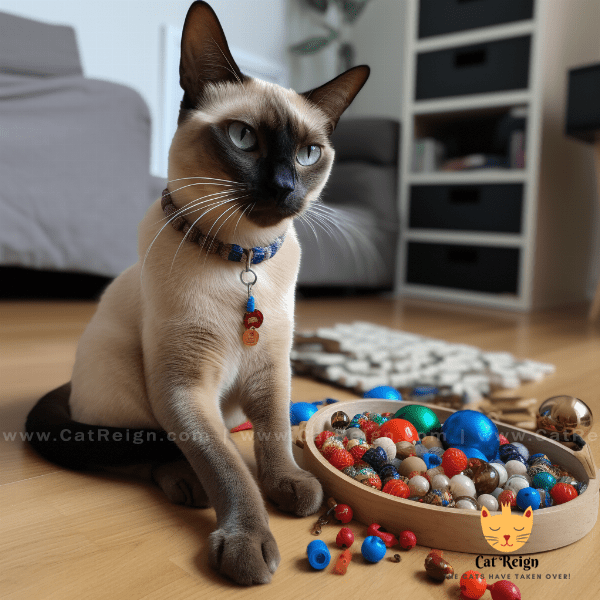
Javanese Cats and Their Relationship with Humans
Javanese Cats are known for their friendly and affectionate personalities, and they form strong bonds with their human companions. Here are some things to know about the relationship between Javanese Cats and humans.
Affectionate Nature
Javanese Cats are very affectionate and love to be close to their owners. They enjoy being petted and cuddled, and will often follow their owners around the house. They are known for their gentle nature and their love of human attention.
Family-Friendly
Javanese Cats are great pets for families with children, as they are patient and gentle with kids. They enjoy playing with children and can be a great source of entertainment and companionship.
Intelligent and Loyal
Javanese Cats are highly intelligent and form strong bonds with their human companions. They are loyal and devoted pets that will do anything to protect and comfort their owners.
Communication
Javanese Cats are very communicative and use a variety of vocalizations and body language to express their feelings. They are skilled at reading human emotions and will often respond to their owner’s moods and needs.
.
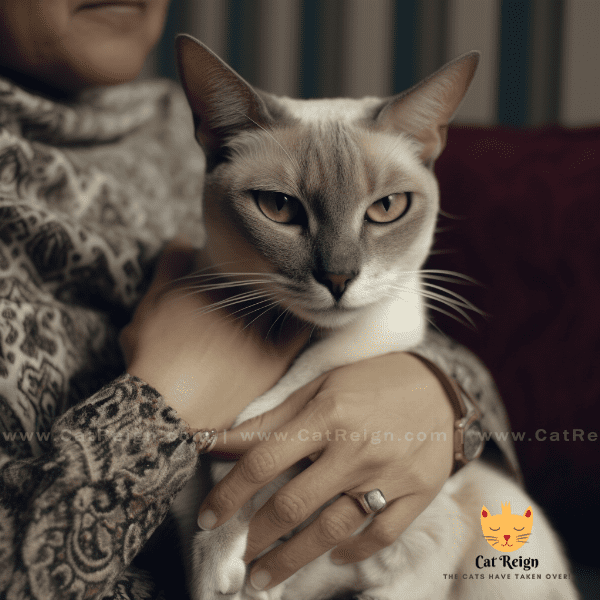
Conclusion: Why Javanese Cats Make Great Pets
Javanese Cats are beautiful, intelligent, and affectionate pets that make great companions for people of all ages. Here are some reasons why Javanese Cats make such great pets.
Affectionate and Loving
Javanese Cats are known for their affectionate and loving nature. They enjoy being close to their owners and will often follow them around the house. They are gentle and patient with children and make great family pets.
Intelligent and Curious
Javanese Cats are highly intelligent and curious creatures that enjoy exploring their surroundings. They are known for their problem-solving skills and their ability to learn new behaviors and tricks.
Loyal and Protective
Javanese Cats form strong bonds with their owners and are fiercely loyal and protective. They will often act as protectors and comforters for their owners, and will do anything to keep them safe and happy.
Low Maintenance
Javanese Cats have long, silky coats that require regular grooming, but are generally low-maintenance pets. They are fastidious creatures that are easy to litter box train and don’t require a lot of exercise.
Emotional Support
Javanese Cats can provide emotional support and companionship to their owners. They are often used as therapy animals and can be a great source of comfort and joy for people of all ages.
In conclusion, Javanese Cats make great pets because of their affectionate nature, intelligence, loyalty, and low-maintenance care. They are great companions for families with children, people looking for emotional support, and anyone who wants a loving and loyal pet. If you’re considering getting a Javanese Cat, you won’t be disappointed!


